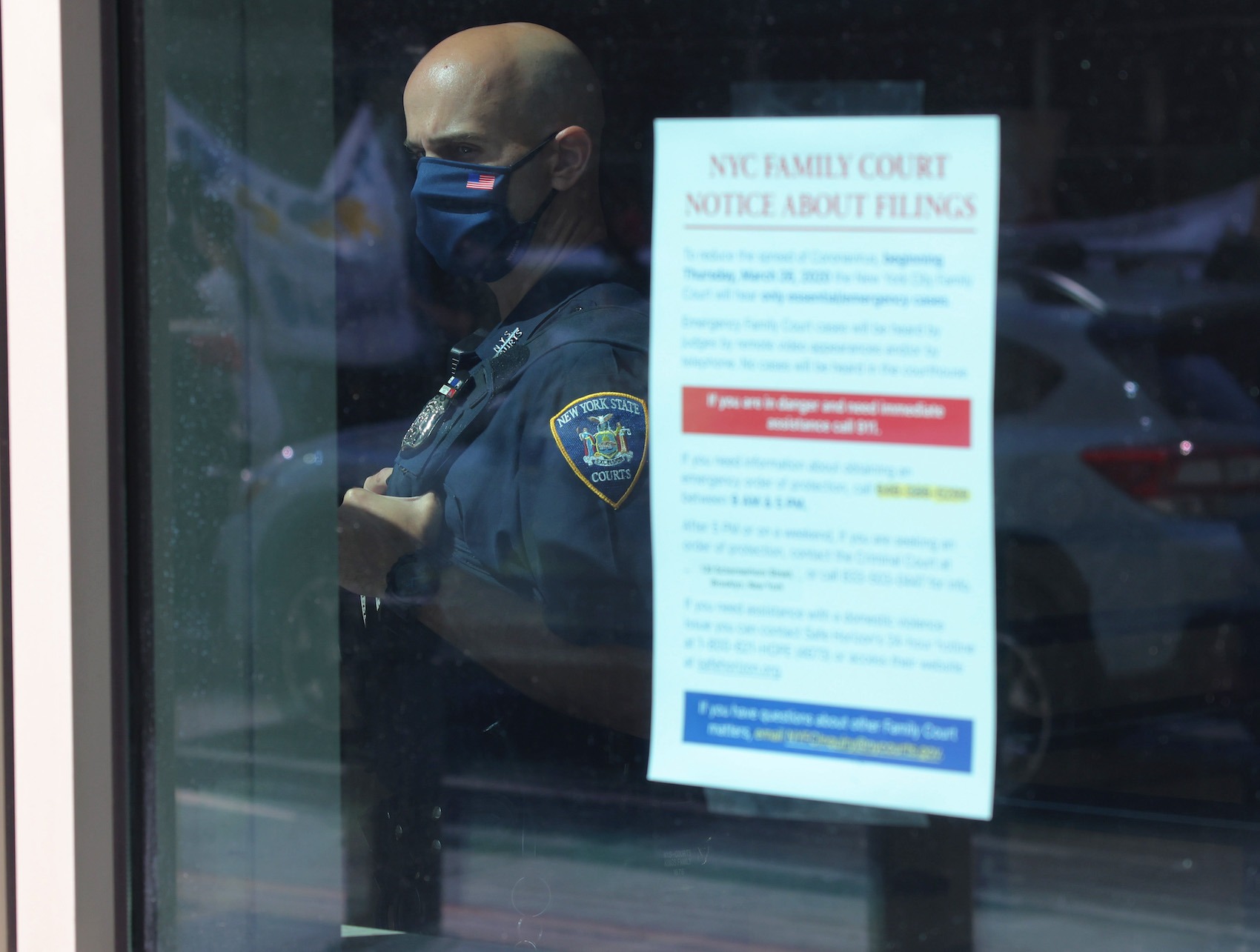Cities Can Fund a Right to Counsel for Eviction Hearings—And They Should
Legal representation during an eviction hearing significantly improves a person’s chances of remaining in their home. Among other ways, cities can use the funding from federal pandemic relief bills to ensure their residents have this critical legal representation.

The Point
Legal representation during an eviction hearing significantly improves a person’s chances of remaining in their home. Among other ways, cities can use the funding from federal pandemic relief bills to ensure their residents have this critical legal representation.
Cities can make sure people facing eviction have a lawyer to help them:
- Cities should not let concerns about funding deter them from providing a right to counsel to tenants facing eviction. As John Pollock, coordinator of the National Coalition for a Civil Right to Counsel recently explained in The Appeal, “The federal response to COVID-19 provides states and localities with a broad array of new federal funding that can contribute to right-to-counsel laws for multiple years, long enough for the right to become institutionalized and easier to support financially in the future.”
- Cities can use funds from the CARES Act to start or expand a right-to-counsel program. For example, Baltimore received $600,000 in CARES Act funds to expand tenant representation in the city.
- Cities can spend funds from the Emergency Rental Assistance Program on right-to-counsel programs. Up to ten percent of dispersed funds can be used for “attorneys fees related to eviction proceedings.” The Right to Counsel Coalition in Fresno, California is using the availability of federal relief funds to push the city council to adopt a right-to-counsel program.
- Cities can expand existing legal representation programs with funds from the American Rescue Act’s Fiscal Recovery Fund. Those funds can be directed to non-profits, like legal aid organizations that are already providing some level of tenant representation at eviction hearings, notes Pollock in his commentary.
An eviction right to counsel is critical in this moment:
- Evictions are a public health crisis. As the authors of a recent academic article note, “Eviction is likely to increase COVID-19 infection rates because it results in overcrowded living environments, doubling up, transiency, limited access to healthcare, and a decreased ability to comply with pandemic mitigation strategies.”
- Evictions have continued, despite the protections both federal and state governments have put in place. Throughout the pandemic, landlords have still filed evictions, judges have still granted them, and overwhelmed tenants unaware of their legal rights have still been displaced.
- Legal representation helps tenants fight back against landlords who exploit loopholes in eviction moratoriums and challenge tenant defenses against eviction. Representation can also help tenants access rental assistance, meaningfully participate in mediation, and establish payment plans for overdue rent.
- A right to counsel demonstrably improves outcomes. In New York City, for example, the right to counsel resulted in 86% of tenants remaining in their homes. In Cleveland, 93% of the represented tenants were able to avoid eviction.
Dive Deeper
- Federal Funding Charts the Path for Local Eviction Right-to-Counsel Efforts. To all of the state lawmakers wondering how to fund legal representation for tenants facing evictions: follow the federal COVID-19 relief packages.
- Protecting Tenants from Eviction in Washington. The Appeal Live speaks with Katie Wilson of the Transit Riders Union about legislative efforts in Washington to provide tenants with legal counsel at eviction proceedings.
- How Policymakers (and Courts) Sabotaged Eviction Moratoria. The patchwork of local, state, and federal moratoria have proven porous, needlessly complicated, poorly understood, and rarely enforced. The moratoria will only be effective if they are strengthened to protect all renters throughout the crisis and used alongside supportive measures like rental assistance and the right to counsel.
- Most Tenants Facing Eviction Don’t Have a Right to an Attorney. Lawmakers Want to Change That. Numerous city councils and state legislatures are debating giving renters a right to counsel, which can make the difference between stability and catastrophe.

